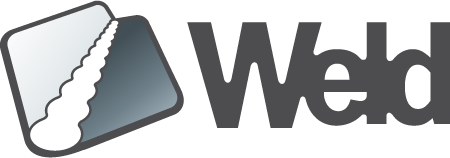Community
Weld is an open-source project. Contributions and participation is welcome.
Quick links:
- issue tracker ( how to report a bug )
- source code repository
- user forum
-
#weld-dev
IRC channel hosted on
freenode.net( log ) - weld/user on Gitter
- weld-dev mailing list
- list of starter issues
- contributors
How to contribute
Want to join the group of Weld contributors ? It's easy. A great way to start is to check out our list of starter issues. Besides, there are other ways to contribute, for example:
- reporting bugs in our issue tracker (please read how to report a bug first ;-)
- fix or expand our reference documentation
- expand our test suite by writing a test case
- implement a new feature or enhancement
1. Fork and clone source code repository from GitHub
If you are new to GitHub you can find help here. Weld implementation resides in core repository. To clone your new fork execute following command in your command line:
git clone git@github.com:/core.git
2. Explore Weld source code structure
You can import Weld source as Maven project to your favourite IDE. Before you start coding we ask you to setup code formatting. You can find neccessary files for your IDE in ide-configs directory in your local clone directory structure. If you are new to CDI/Weld then the examples and probe directories could be good starting point for you.
3. Choose a topic of your interest
You can check open issues, tasks, feature requests and bugs at Weld Jira. Alternatively, feel free to come up with new ideas.
If you are new to Weld and need help, use user forum or #weld-dev IRC channel. For discussing Weld development use our development mailing list. When working on a new feature or bug it's very helpful to also provide tests case covering the related area.
4. Submit a pull request
We follow the Integration Manager Workflow for managing changes to the Weld source code. If you are new to using GitHub we recommend that you read this tutorial.
Before submitting a pull request make sure your branch can be built without any errors and the tests are passing (running "mvn clean install" in Weld core root directory could be sufficient). Commit your work to your branch with a suitable commit message (it's good idea to include Jira issue key if any exists) and submit a pull request to the related upstream branch at GitHub. Pull request will trigger CI job at Jenkins where you can check your results. Once the request passes tests and is verified by an integration manager (Weld core developers) you become a Weld contributor :-).


